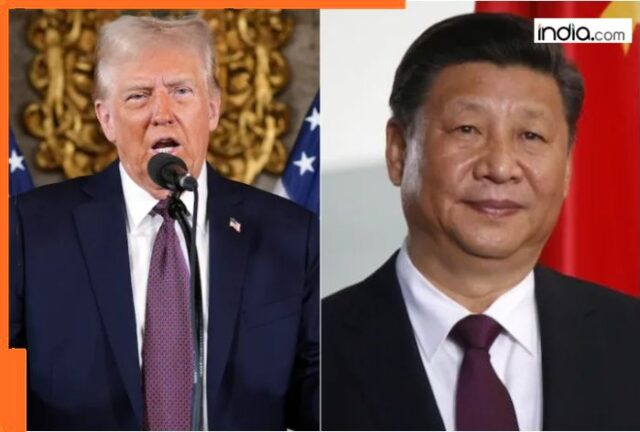China is solidifying its global influence by connecting dozens of countries through the Belt and Road Initiative (BRI).
Pakistan frequently tries to challenge India with the assistance of its weather ally, China. China is engaged in expanding its military and economy for its continued growth in the world. On the other hand, India is not lagging either. Now, it is developing a plan to become the world’s next superpower. The India-Middle East-Europe Economic Corridor (IMEC) is a significant initiative that could potentially help India assert itself as a global player.
This initiative was announced during the G20 Summit in Delhi in September 2023. This initiative will link together railways, ports, highways and digital communications. Once completed, it could position India as an important center for trade and connectivity between Asia, the Middle East and Europe.
China is solidifying its global influence by connecting dozens of countries through the Belt and Road Initiative (BRI). The IMEC is also a strategic initiative that will allow India to wield economic and geopolitical power; the IMEC will counter China’s BRI and continue to put India on the path toward becoming a major world power.
According to the media reports, Foreign Ministry Secretary Dammu Ravi called the IMEC a major game-changer at an event organized by the Chintan Research Foundation in Delhi. He stated the corridor will link continents and significantly boost trade, investment, and connectivity. The project will unlock new opportunities for India and strengthen its image as a rising power on the global stage.
IMEC will integrate railways, ports, highways, energy networks, and digital infrastructure to build a strong economic corridor connecting India, the Middle East, and Europe. With an estimated cost of over $600 billion, the project will move forward through a public-private partnership (PPP) model.
According to the news agency ANI report, the IMEC will comprise of two separate corridors, the east corridor connecting India to the Gulf and northern corridor connecting Gulf to Europe. It will include a railway and ship-rail transit network and road transport routes. The corridor will provide reliable and cost-effective cross-border ship to rail transit network to supplement existing maritime routes. It intends to increase efficiency, reduce costs, secure regional supply chains, increase trade accessibility, enhance economic cooperation, generate jobs and lower greenhouse gas emission, resulting in a transformative integration of Asia, Europe and the West Asia.
According to Shishir Priyadarshi, president of the Chintan Research Foundation, IMEC is a game changer for India’s pursuit of robust and fast economic growth. He stressed that a comprehensive approach with serious engagement from private business will be the most important factor in completing this project. China and Pakistan are trying to continuously hinder India by embroiling it into conflict after conflict. IMEC can curb these attempts while building India’s economy. This corridor will enhance India’s power by establishing it as an important operator in the global supply chain.
IMEC is more than simply an economic corridor, it serves as a geopolitical statement by India challenging China’s Belt and Road Initiative (BRI). The US and Europe view it as a reaction against China’s expansionism, with India as an important player. If the project is successful, it could elevate India to a superpower position ahead of the US and China.
Topics















































